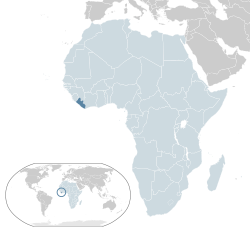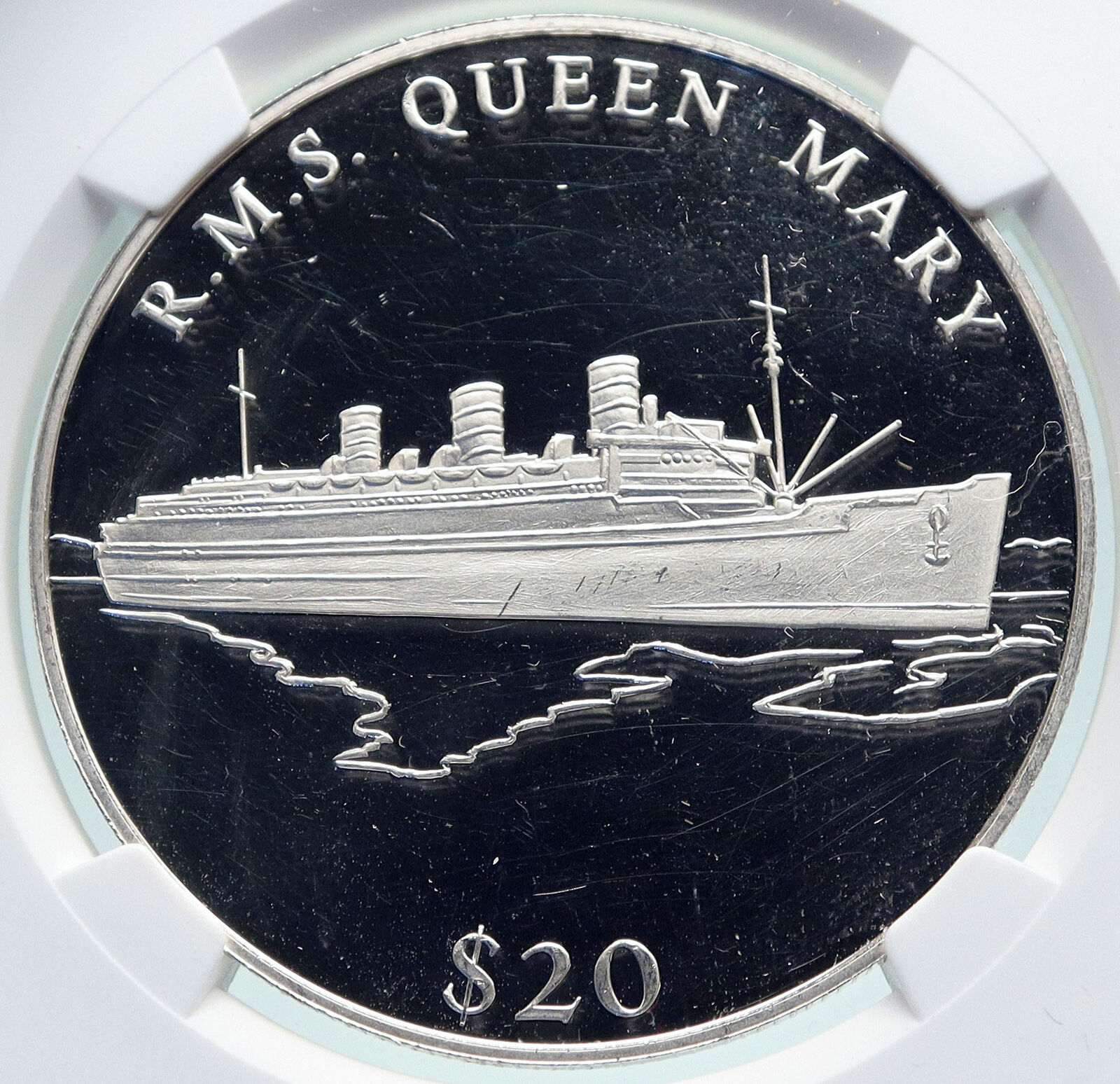|
Liberia
American civil war series – 135th Anniversary of the Surrender at Appomattox
Court House
2000 Proof Silver 20 Dollars 40mm (20.04
grams) 0.999 Silver (0.6424 oz. ASW)
Reference: KM# 478
Certification: NGC
PF 69 ULTRA CAMEO 2863551-011
REPUBLIC OF LIBERIA THE LOVE OF LiBERTY BROUGHT US HERE 2000 REPUBLIC OF LIBERIA 20 DOLLARS, Coat of arms in the middle.
CIVIL WAR – THE SURRENDER AT APPOMATTOX COURT HOUSE 1865 $20, Surrender Signing
Scene.
You are bidding on the exact item pictured, provided with a Certificate of Authenticity and Lifetime Guarantee of Authenticity.
The Battle of Appomattox Court House, fought in Appomattox County, Virginia, on the morning of April 9, 1865, was one of the last battles of the American Civil War (1861–1865). It was the final engagement of Confederate General in Chief, Robert E. Lee, and his Army of Northern Virginia before they surrendered to the Union Army of the Potomac under the Commanding General of the United States Army, Ulysses S. Grant.
 Lee, having abandoned the Confederate capital of Richmond, Virginia, after the nine-and-a-half-month Siege of Petersburg and Richmond, retreated west, hoping to join his army with the remaining Confederate forces in North Carolina, the Army of Tennessee under Gen. Joseph E. Johnston. Union infantry and cavalry forces under Gen. Philip Sheridan pursued and cut off the Confederates’ retreat at the central Virginia village of Appomattox Court House. Lee launched a last-ditch attack to break through the Union forces to his front, assuming the Union force consisted entirely of lightly armed cavalry. When he realized that the cavalry was now backed up by two corps of federal infantry, he had no choice but to surrender with his further avenue of retreat and escape now cut off. Lee, having abandoned the Confederate capital of Richmond, Virginia, after the nine-and-a-half-month Siege of Petersburg and Richmond, retreated west, hoping to join his army with the remaining Confederate forces in North Carolina, the Army of Tennessee under Gen. Joseph E. Johnston. Union infantry and cavalry forces under Gen. Philip Sheridan pursued and cut off the Confederates’ retreat at the central Virginia village of Appomattox Court House. Lee launched a last-ditch attack to break through the Union forces to his front, assuming the Union force consisted entirely of lightly armed cavalry. When he realized that the cavalry was now backed up by two corps of federal infantry, he had no choice but to surrender with his further avenue of retreat and escape now cut off.
The signing of the surrender documents occurred in the parlor of the house owned by Wilmer McLean on the afternoon of April 9. On April 12, a formal ceremony of parade and the stacking of arms led by Confederate Maj. Gen. John B. Gordon to federal Brig. Gen. Joshua Chamberlain marked the disbandment of the Army of Northern Virginia with the parole of its nearly 28,000 remaining officers and men, free to return home without their major weapons but enabling men to take their horses and officers to retain their sidearms (swords and pistols), and effectively ending the war in Virginia.
This event triggered a series of subsequent surrenders across the South, in North Carolina, Alabama and finally Shreveport, Louisiana, for the Trans-Mississippi Theater in the West by June, signaling the end of the four-year-long war.
 Liberia officially the Republic of Liberia, is a country on the West African coast. Liberia means “Land of the Free” in Latin. It is bordered by Sierra Leone to its west, Guinea to its north and Ivory Coast to its east. It covers an area of 111,369 square kilometres (43,000 sq mi) and is home to 4,503,000 people. English is the official language and over 20 indigenous languages are spoken, representing the numerous tribes who make up more than 95% of the population. Liberia officially the Republic of Liberia, is a country on the West African coast. Liberia means “Land of the Free” in Latin. It is bordered by Sierra Leone to its west, Guinea to its north and Ivory Coast to its east. It covers an area of 111,369 square kilometres (43,000 sq mi) and is home to 4,503,000 people. English is the official language and over 20 indigenous languages are spoken, representing the numerous tribes who make up more than 95% of the population.
 Forests on the coastline are composed mostly of salt-tolerant mangrove trees, while the more sparsely populated inland has forests opening onto a plateau of drier grasslands. The climate is equatorial, with significant rainfall during the May-October rainy season and harsh harmattan winds the remainder of the year. Liberia possesses about forty percent of the remaining Upper Guinean rainforest. It was an important producer of rubber in the early 20th century. Forests on the coastline are composed mostly of salt-tolerant mangrove trees, while the more sparsely populated inland has forests opening onto a plateau of drier grasslands. The climate is equatorial, with significant rainfall during the May-October rainy season and harsh harmattan winds the remainder of the year. Liberia possesses about forty percent of the remaining Upper Guinean rainforest. It was an important producer of rubber in the early 20th century.
The Republic of Liberia, beginning as a settlement of the American Colonization Society (ACS), declared its independence on July 26, 1847. The United States did not recognize Liberia’s independence until after the American Civil War on February 5, 1862. Between January 7, 1822 and the American Civil War, more than 15,000 freed and free-born Black Americans from United States and 3,198 Afro-Caribbeans relocated to the settlement. The Black American settlers carried their culture with them to Liberia. The Liberian constitution and flag were modeled after the United States. In January 3, 1848 Joseph Jenkins Roberts, a wealthy free-born Black American from Virginia who settled in Liberia, was elected as Liberia’s first president after the people proclaimed independence.
Unlike other African countries, Liberia is the only African republic to have self-proclaimed independence without gaining independence through revolt from any other nation, being Africa’s first and oldest republic. Although it is said that neither Liberia nor Ethiopia, which was a kingdom, were controlled or colonized by foreign powers, this seems contradictory since the country was actually started by the American Colonization Society (ACS). Liberia maintained and kept its independence during the European colonial era.
During World War II, Liberia supported the United States war efforts against Germany and in turn the United States invested in considerable infrastructure in Liberia to help its war effort, which also aided the country in modernizing and improving its major air transportation facilities. In addition, President William Tubman encouraged economic changes. Internationally, Liberia was a founding member of League of Nations, United Nations and the Organisation of African Unity.
Longstanding political tensions from the 27 year rule of William Tubman resulted in a military coup in 1980 that overthrew the leadership soon after his death, marking the beginning of political instability. Five years of military rule by the People’s Redemption Council and five years of civilian rule by the National Democratic Party of Liberia were followed by two civil wars – the First and Second Liberian Civil Wars. These resulted in the deaths and displacement of more than half a million people and devastated Liberia’s economy. A peace agreement in 2003 led to democratic elections in 2005. Recovery proceeds but about 85% of the population live below the international poverty line.
|









 Lee, having abandoned the Confederate capital of Richmond, Virginia, after the nine-and-a-half-month Siege of Petersburg and Richmond, retreated west, hoping to join his army with the remaining Confederate forces in North Carolina, the Army of Tennessee under Gen. Joseph E. Johnston. Union infantry and cavalry forces under Gen. Philip Sheridan pursued and cut off the Confederates’ retreat at the central Virginia village of Appomattox Court House. Lee launched a last-ditch attack to break through the Union forces to his front, assuming the Union force consisted entirely of lightly armed cavalry. When he realized that the cavalry was now backed up by two corps of federal infantry, he had no choice but to surrender with his further avenue of retreat and escape now cut off.
Lee, having abandoned the Confederate capital of Richmond, Virginia, after the nine-and-a-half-month Siege of Petersburg and Richmond, retreated west, hoping to join his army with the remaining Confederate forces in North Carolina, the Army of Tennessee under Gen. Joseph E. Johnston. Union infantry and cavalry forces under Gen. Philip Sheridan pursued and cut off the Confederates’ retreat at the central Virginia village of Appomattox Court House. Lee launched a last-ditch attack to break through the Union forces to his front, assuming the Union force consisted entirely of lightly armed cavalry. When he realized that the cavalry was now backed up by two corps of federal infantry, he had no choice but to surrender with his further avenue of retreat and escape now cut off. Liberia officially the Republic of Liberia, is a country on the West African coast. Liberia means “Land of the Free” in Latin. It is bordered by Sierra Leone to its west, Guinea to its north and Ivory Coast to its east. It covers an area of 111,369 square kilometres (43,000 sq mi) and is home to 4,503,000 people. English is the official language and over 20 indigenous languages are spoken, representing the numerous tribes who make up more than 95% of the population.
Liberia officially the Republic of Liberia, is a country on the West African coast. Liberia means “Land of the Free” in Latin. It is bordered by Sierra Leone to its west, Guinea to its north and Ivory Coast to its east. It covers an area of 111,369 square kilometres (43,000 sq mi) and is home to 4,503,000 people. English is the official language and over 20 indigenous languages are spoken, representing the numerous tribes who make up more than 95% of the population. Forests on the coastline are composed mostly of salt-tolerant mangrove trees, while the more sparsely populated inland has forests opening onto a plateau of drier grasslands. The climate is equatorial, with significant rainfall during the May-October rainy season and harsh harmattan winds the remainder of the year. Liberia possesses about forty percent of the remaining Upper Guinean rainforest. It was an important producer of rubber in the early 20th century.
Forests on the coastline are composed mostly of salt-tolerant mangrove trees, while the more sparsely populated inland has forests opening onto a plateau of drier grasslands. The climate is equatorial, with significant rainfall during the May-October rainy season and harsh harmattan winds the remainder of the year. Liberia possesses about forty percent of the remaining Upper Guinean rainforest. It was an important producer of rubber in the early 20th century.




